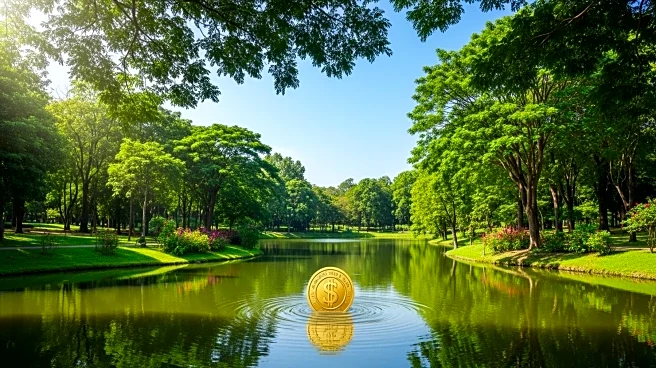What's Happening?
United Parks & Resorts Inc. has announced a $500 million share repurchase program, approved by shareholders on September 3, 2025. This move is intended to return capital to shareholders but has sparked debate due to the company's financial situation. As of December 2024, United Parks & Resorts reported $2.36 billion in total debt and negative shareholder equity of -$394.85 million. The company's net leverage ratio stands at 2.98x, indicating a high level of debt relative to earnings before interest, taxes, depreciation, and amortization (EBITDA). Despite these challenges, the company has emphasized that the buyback will be funded by a strong balance sheet and significant free cash flow generation. However, there is ambiguity regarding the exact funding mechanism, raising concerns about potential reliance on new debt.
Why It's Important?
The share buyback program is significant as it reflects United Parks & Resorts' strategy to enhance shareholder value. By reducing the number of shares outstanding, the company aims to increase earnings per share (EPS), potentially boosting stock prices. However, the financial health of the company is a concern, with high leverage and negative equity posing risks. If the buyback is funded through new debt, it could exacerbate financial vulnerabilities, leading to higher borrowing costs or covenant breaches. The decision also highlights the company's confidence in its stock being undervalued, though market reactions have been mixed. The outcome of this buyback will be closely watched by investors, as it could either stabilize the company's financial position or expose it to further risks.
What's Next?
The success of the buyback program will depend on United Parks & Resorts' ability to fund it without increasing debt levels. The company must maintain operational performance amid external pressures such as adverse weather and rising costs. Analysts will be monitoring whether the buyback is executed prudently, prioritizing free cash flow over new debt. The governance structure of the buyback, which prevents Hill Path Capital from acquiring 70% ownership, adds a layer of complexity. This restriction safeguards against concentrated control but may limit the full potential of the buyback. The market will be watching to see if United Parks & Resorts can turn this initiative into a long-term value enhancement.











